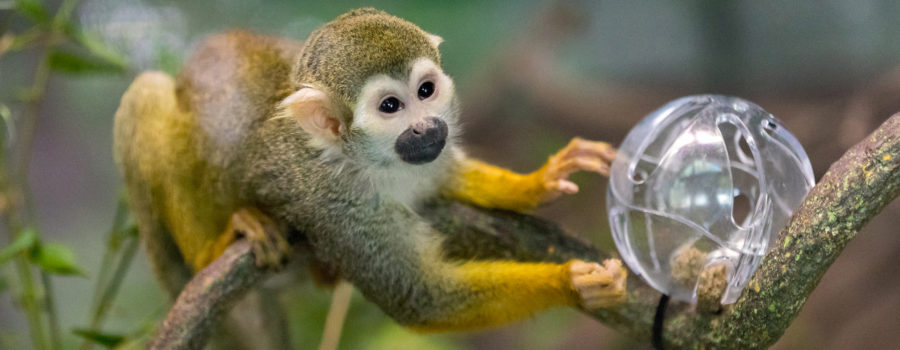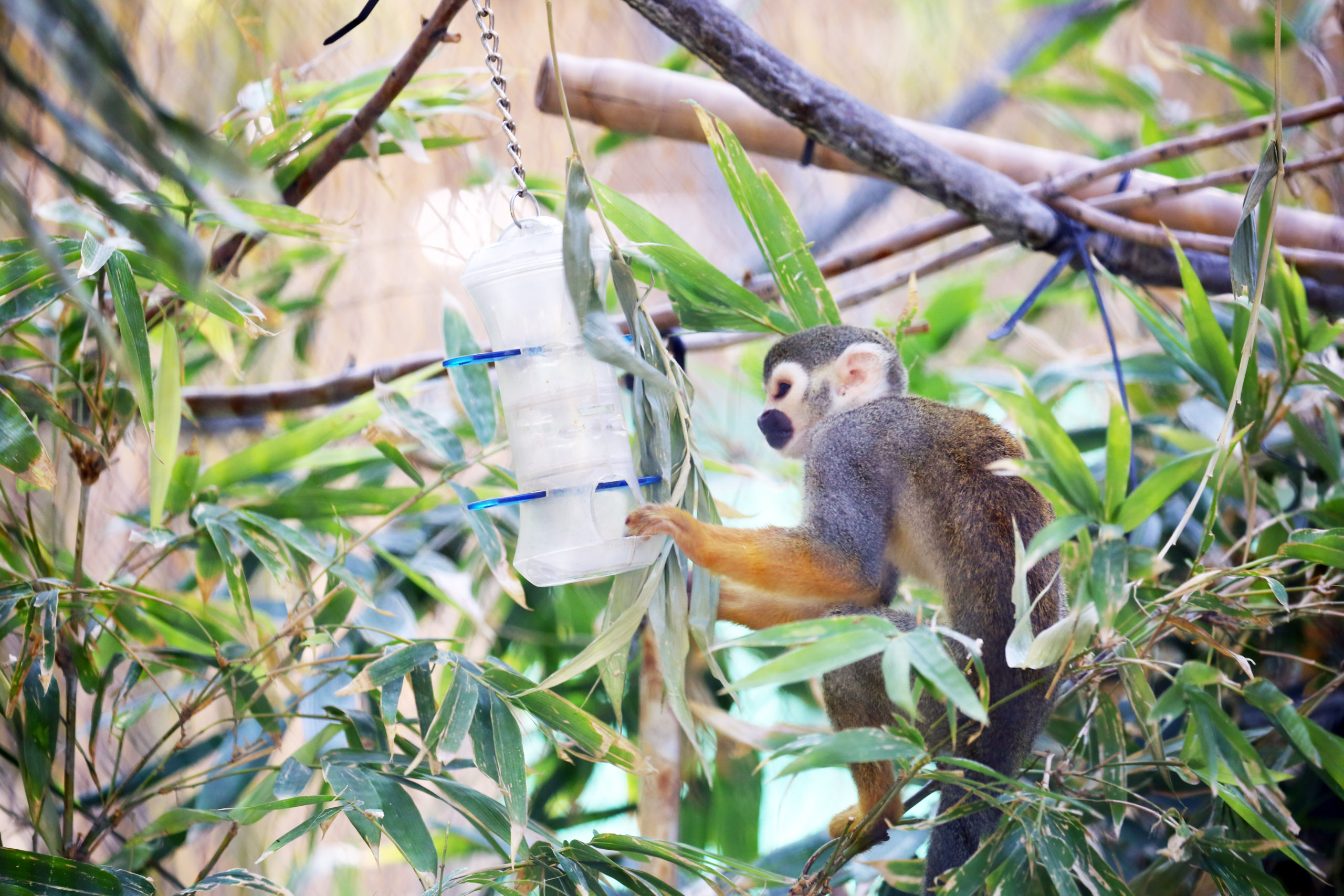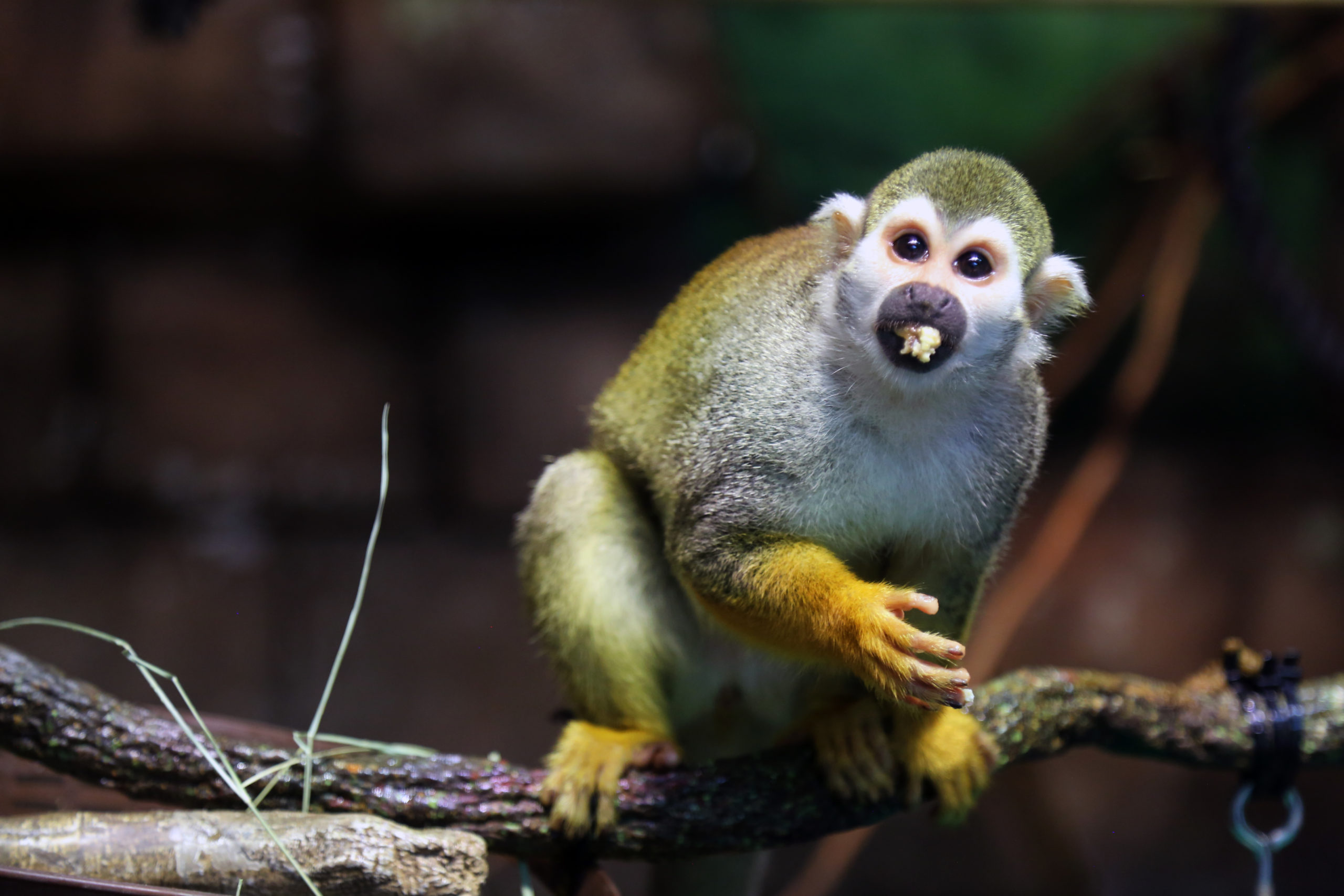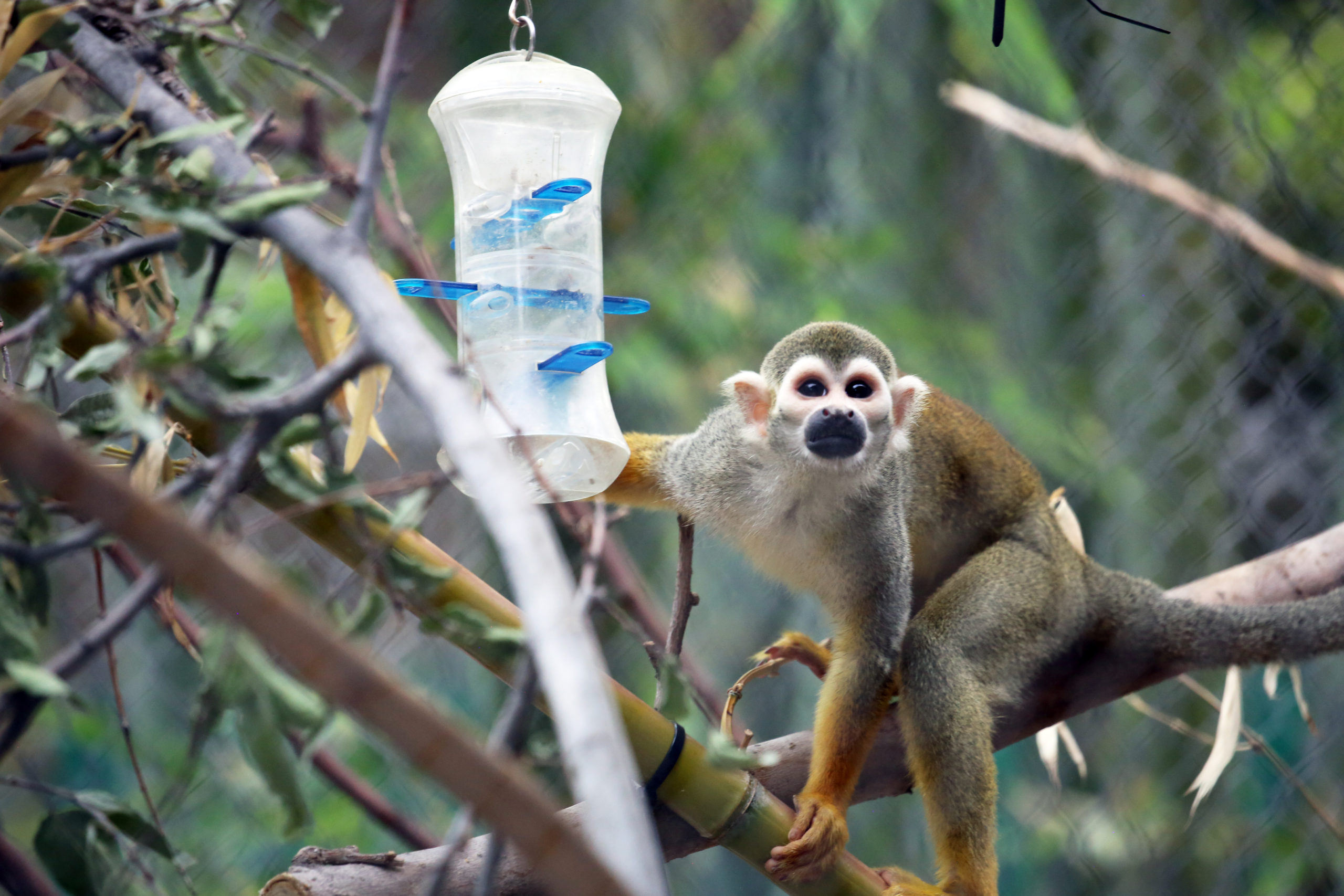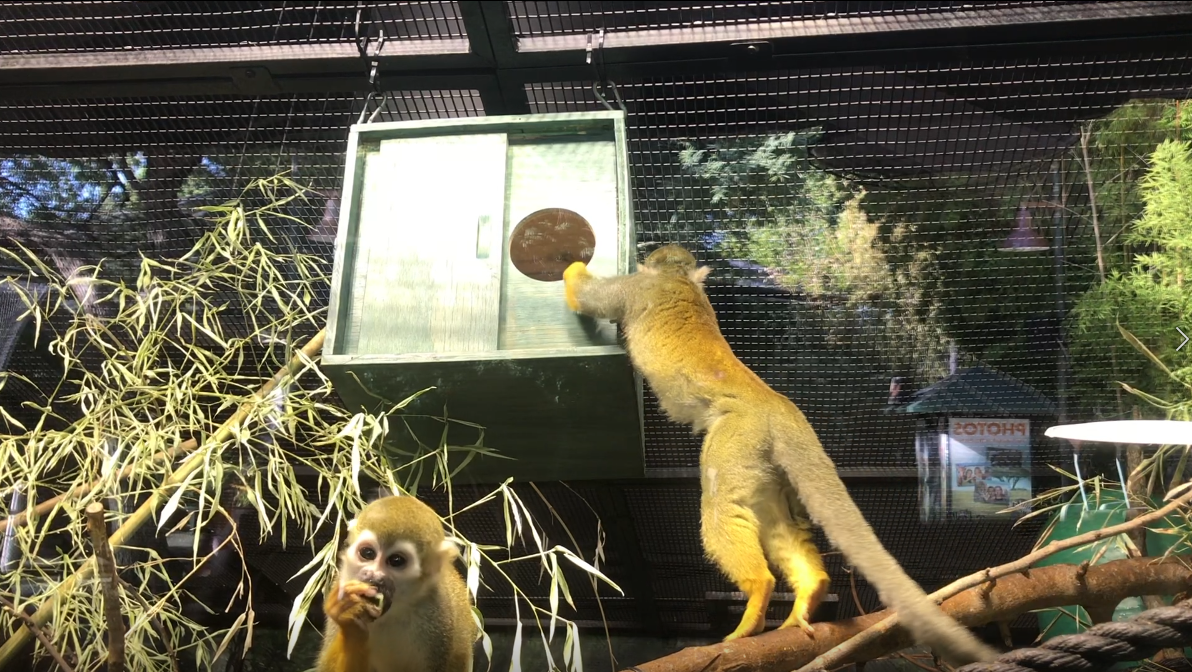Squirrel monkeys are one of the smallest members of the primate group, measuring in at about 12.5 inches in body length, and about 16 inches of tail. Their tail, unlike many monkey species, is not prehensile. This means that they cannot use their tail to wrap around and grip tree branches and limbs as they climb. Instead, these tiny monkeys rely on their powerful and precise hands to travel through the trees, using their long tail to help them balance.
Diet: Squirrel monkeys are omnivores, meaning they feast on both plant and animal food items. These include flowers, fruits, leaves, insects, small vertebrates, and even eggs.
In the Wild: These monkeys band together in rather large group sizes from 25 to 500, and only break down into smaller groups while hunting. Like humans, squirrel monkeys are diurnal, meaning they are most active during the day, and sleep at night. This is a highly vocal species, producing between 25 to 30 unique calls used to communicate across their forest habitats.
Conservation issues/actions: Their natural habitat is greatly affected by deforestation. Due to their small size, the common squirrel monkey is also impacted by the illegal pet trade. Taking a stand in advocating against the illegal pet trade will help prevent loss to wild squirrel monkey populations. By making more sustainable choices when buying products we can help protect the habitats that squirrel monkeys and other forest species call home.
At the Zoo:
Here at Reid Park Zoo, Animal Care Staff provide the squirrel monkeys with puzzle feeders and create a food scavenger hunt for them to encourage their natural foraging behaviors in their habitat. Primates around the world are losing their habitats due to human activity. Deforestation for agriculture and human development means that monkeys and apes struggle to provide their families with the resources they need to survive. The Reid Park Zoo supports protecting primate families and their forests by encouraging everyone to buy sustainably sourced products such as palm oil, wood, coffee and chocolate that are produced in a responsible way. Together, we can protect habitats for future generations.

